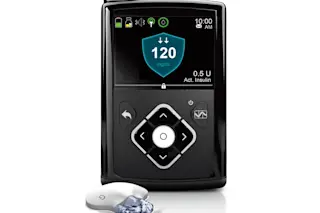The MiniMed 670G hybrid closed-loop system. (Credit: Medtronic) "My guess is that even Medtronic is surprised." So said Jeffrey Brewer, the visionary tech entrepreneur who has been leading efforts to bring an artificial pancreas to market for a decade, in response to the unexpected news on Sept. 28 that the Food and Drug Administration approved one developed by Medtronic, already a leading manufacturer of insulin pumps. A mere two weeks earlier, results were released of the largest and longest study yet of the device that fuses two existing technologies — an insulin pump and a continuous glucose monitor that measures blood-sugar levels 24/7 — together with a computer algorithm that permits automatic delivery of insulin for people with type 1 diabetes. The most severe form of the disease, type 1 diabetes is diagnosed when a person's biological pancreas stops producing nearly all insulin. As described in Discover in an article ...
FDA Approves First Artificial Pancreas Faster Than Anyone Expected
Discover how the FDA approved the MiniMed 670G hybrid closed-loop system, a breakthrough artificial pancreas for type 1 diabetes.
More on Discover
Stay Curious
SubscribeTo The Magazine
Save up to 40% off the cover price when you subscribe to Discover magazine.
Subscribe













